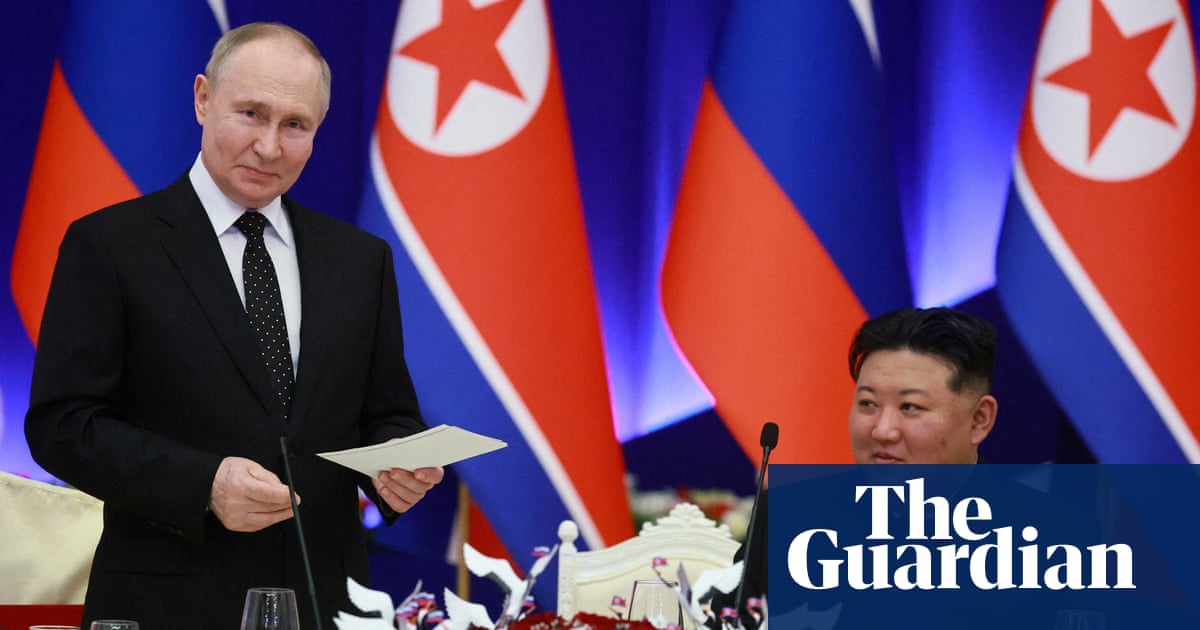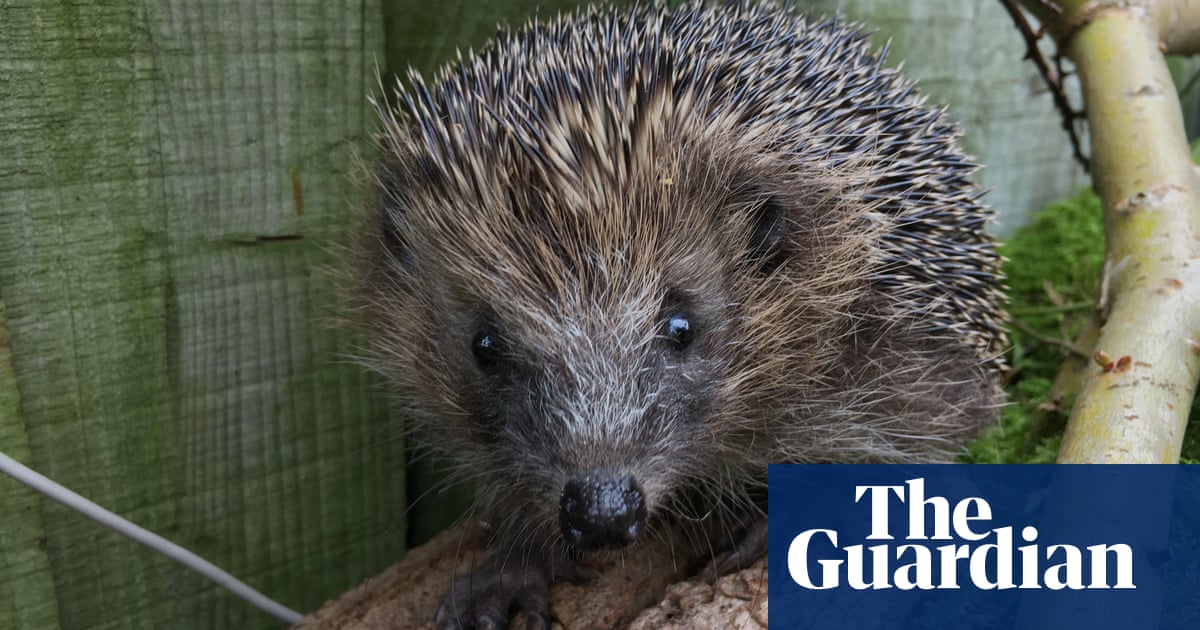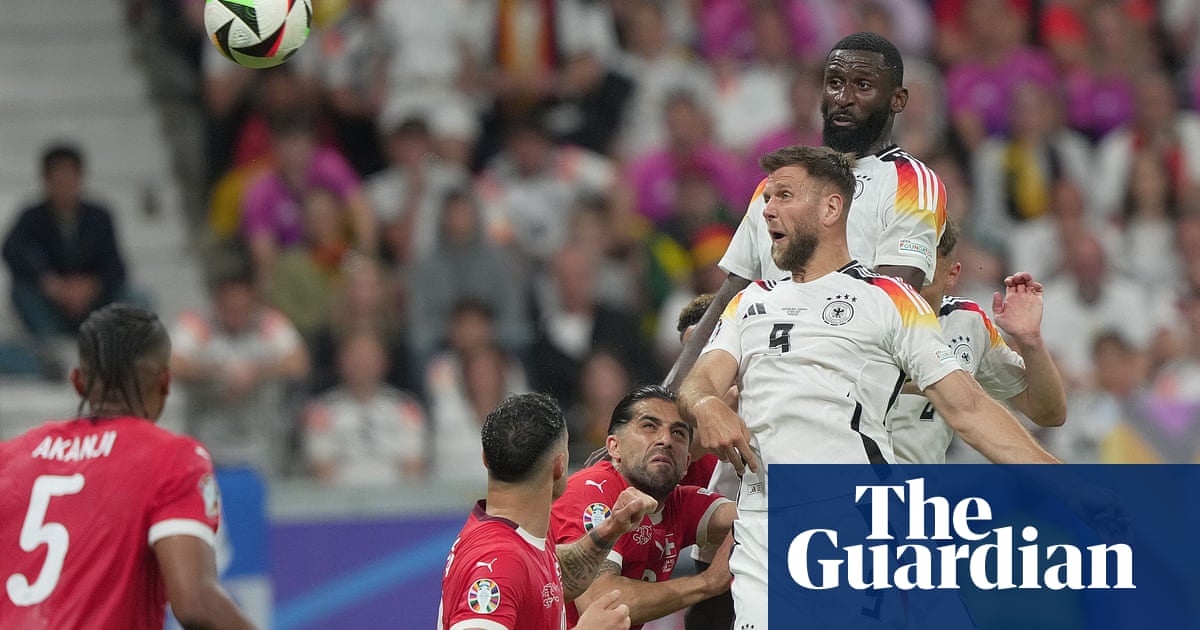North Korea is known to have supplied ammunition and missiles to help Russia prosecute its war against Ukraine, but recent reports claim the secretive state is also sending large numbers of troops.
The reports were confirmed this week by the Ukrainian president, Volodymyr Zelenskyy, who said ties between Moscow and Pyongyang were entering a new and more worrying phase.
Why does Russia need North Korean troops to fight alongside its forces in Ukraine?
The Russian president, Vladimir Putin, and his North Korean counterpart, Kim Jong-un, signed a secret âmutual aid agreementâ in June that may have facilitated the transfer of ammunition and missiles â and now personnel.
The rumoured transfer of large numbers of North Korean troops comes amid reports in the Ukrainian media that Putin is struggling to mobilise more Russians amid growing unease at home about the length and cost of the war, both financially and in terms of casualties. Last week, the New York Times reported that September was the âbloodiestâ month yet for Russian troops fighting in the war, with 115,000 Russians killed since the start of the war and 500,000 wounded.
This week, the Kyiv Post quoted Ukrainian military sources as saying that as many as 3,000 North Korean troops were being supplied with small arms and ammunition in advance of their deployment in âhigh-risk operations aimed at reducing the strain on Russian forcesâ.
What role are North Korean soldiers playing in the conflict?
Although details of the Putin-Kim deal have never been made public, media reports said several thousand North Korean soldiers were being trained in Russia and could be deployed on the frontline by the end of the year.
That would be in addition to dozens of North Korean technicians who have reportedly been sent to Ukraine to assist in the deployment of exported weapons, including KN-23 ballistic missiles.
As the Guardian reported last week, North Korean personnel who have been offering technical advice to their Russian counterparts are thought to have been among the dead after a Ukrainian missile strike on Russian-occupied territory near Donetsk earlier this month.
What will North Korea get in return?
Kimâs regime stands to gain financially and militarily, although closer ties with Russia will only deepen its isolation in the wider international community.
North Korea, which has been subject to decades of UN-led sanctions over its nuclear and ballistic missile programmes, is constantly seeking new sources of foreign currency â and providing hardware to the Kremlin almost certainly comes with a quid pro quo.
The countryâs already fragile economy was hit hard by the closure of its borders with China â by far its biggest trading partner â during the Covid-19 crisis and has yet to fully recover.
North Korean civilians reportedly sent to Ukraine to rebuild shattered infrastructure in Russian-held areas are another source of cash, in defiance of a UN order to repatriate all North Korean migrant workers by the end of 2019.
North Koreaâs army generals could learn valuable lessons about warfare as the country raises tensions with South Korea and its allies, while the conflict in Ukraine gives the regime the chance to gauge how well â or badly â its munitions and missiles perform in a real war setting.
When Kim visited Putin in Russia last year, he is understood to have discussed possible Russian help with the Northâs troubled spy satellite programme.
How have Ukraine and its allies reacted?
Citing Ukrainian intelligence service briefings confirming the âactual involvementâ of North Korea in the war, Zelenskyy said in a Telegram post this week that their presence proved that Ukraine needed more international support to apply pressure on Russia and âprevent a bigger warâ.
The US said it was âconcernedâ by the reports, which the Kremlin described as âfake newsâ.
Sean Savett, the White House national security council spokesperson, said any North Korean involvement in the war would mark a significant increase in Pyongyang-Moscow defence ties. âSuch a move would also indicate a new level of desperation for Russia as it continues to suffer significant casualties on the battlefield in its brutal war against Ukraine,â Savett said.
The US armyâs Indo-Pacific commander, Gen Charles Flynn, said the North would be able to get real-time feedback on its weapons â knowhow it could not acquire through its long, but largely peaceful, standoff with South Korea.
âThatâs different because they are providing capabilities and â open-source reporting â thereâs manpower that is also over there,â Flynn said at an event in Washington. âThat kind of feedback from a real battlefield to North Korea to be able to make adjustments to their weapons, their ammunition, their capabilities, and even their people â to me, is very concerning.â



